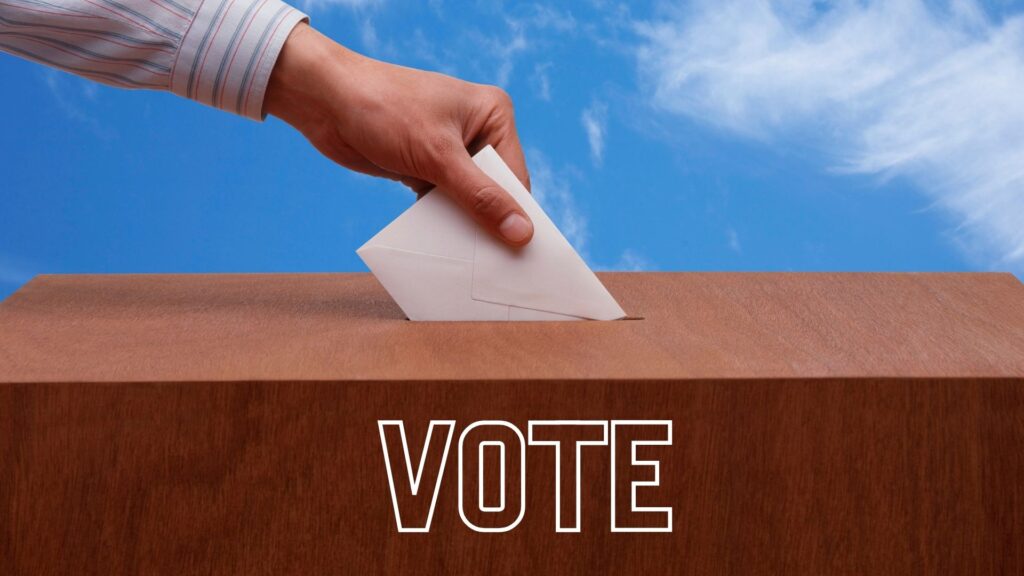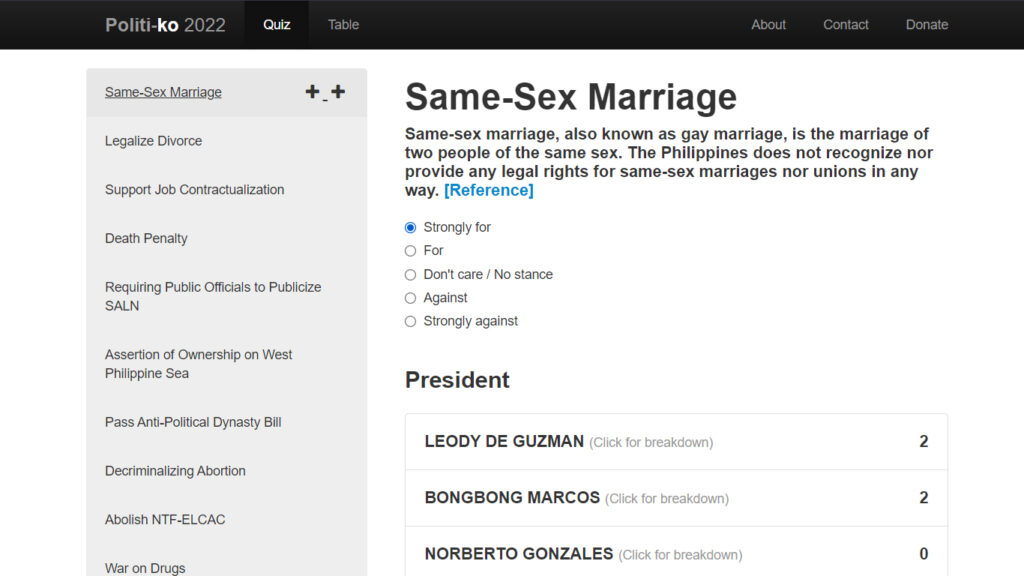
With the presidential elections nearing, trolls, and propagandists seem to be working overtime in spreading misinformation like a viral disease; a plague that turns people into raging fanatics mindlessly shouting their candidate’s name. A tasteless depiction of these demagogues as saviors and pillars of righteousness. The election is rapidly dipping into a personality-driven political dystopia where the population has fallen prey to talentless dance moves, tacky campaign jingles, and political rallies turned into raves.
People seem to care less and less about the beliefs and ideals of our public servants and heavily rely on their likability and popularity as the standard for competency.
What if there’s a solution to this?
What if there is a platform where people can assess their stances on certain socio-political issues? Or an app where they can see which candidate their beliefs and ideologies are most aligned with? Something like those BuzzFeed quizzes that show “Which Pokemon are you?” or “What kind of vegetable would you be?”.
Or a quiz where the candidates’ actual answers to certain issues are the choices, with their words detached from their face and name, potentially reducing the voter’s bias towards or against them. If the results show a candidate different from the one they support, voters would be inclined to check their biases and critically dissect the platforms and ideologies of the candidate they like. This may change the voter’s method for choosing their presidential bets from personality-centered to issue-based decision-making.
That’s when I shared this idea with my cousin, Pepe, with great hopes that this once-in-a-lifetime idea is a revolutionary breakthrough that would change the dynamics of how we choose and how we vote (probably even the key to cure cancer). Apparently, he and his friend Levi already did this six years ago with Politi-ko. It may not be as entertaining as the “Which backstreet boy are you?” quiz I took a few years back, but it certainly did the job. He asked me if I was willing to gather the data to make Politi-ko 2022. I almost declined, doubting if I could gather enough data for the quiz, especially with the absence of the two frontrunners in the debates. Thankfully the websites eboto.ph and votepilipinas.com made my job easier in gathering the data and choosing the issues that most candidates have stances on.

Sadly, the current political discourse in the country is heavily influenced by the candidate’s popularity, a vital factor that voters consider in their decision-making. This practice distances our decisions from facts and pulls us closer to personality politics, a slippery slope where one can easily slide into fanaticism. With this platform, we hope to provide enough friction to prevent us from sliding into this worst-case scenario.
The first-past-the-post voting system (aka plurality voting) restricts our liberty on how we vote and whom to vote for, and until we switch to a better alternative, Politi-ko is a way to work inside these parameters. This quiz will not be enough for voters to not consider the “winnability” of a candidate nor stop people from having to engage in tactical voting to prevent an undesirable outcome, but that requires a greater systemic change and a different battle.
This quiz is a tool to educate us on certain issues where we can see the stances of the people we are electing to lead us in the next six years. I believe that it is powerful enough to make us think and reassess our decision-making, double-check our biases, and see if we are supporting a candidate for the right reasons.
Although Politi-ko 2022 may seem like a mere compatibility test, we hope that it is a step towards a better electoral process.

